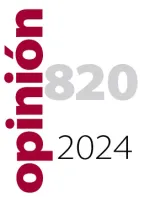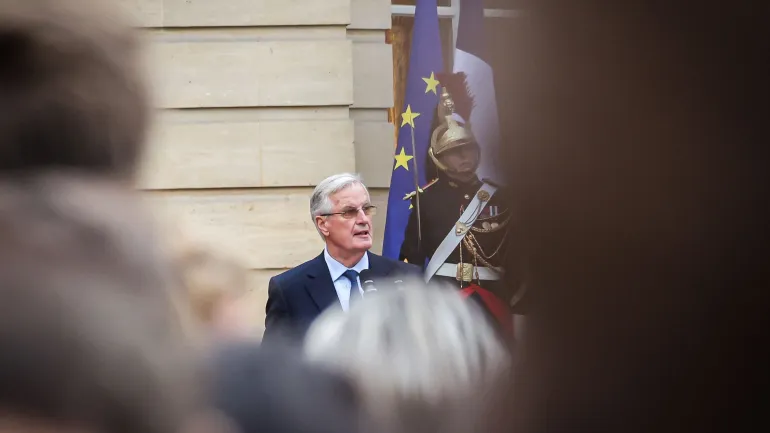Why Barnier’s government fell


The fall of the Barnier government highlights the failure of mainstream French parties to exclude populist groups, leading to political paralysis and a fiscal crisis exacerbated by economic stagnation. Emmanuel Macron’s defeat in the last snap parliamentary election and his subsequent political manoeuvres have further destabilized the political landscape. Despite efforts to project unity, Macron’s legacy is overshadowed by political chaos and rising debt.
There are two lessons to be drawn from the fall of the Barnier government. First, the effort of the mainstream parties which have governed France for more than a generation to exclude populist parties – especially the Front National but also La France Insoumise – from office appears to be doomed in the longer, or even medium term. Such behaviour is a recipe for increasing political paralysis in the short term, a paralysis which needs to be set in the context of a deepening international crisis and a rise in France’s unsustainable indebtedness. The fiscal crisis in France has been a key factor behind the decline – some would say the decay – of mainstream political parties which have alternated in power since the 1980s.
Emmanuel Macron was defeated in the snap parliamentary election he called in June because he gambled that fear of hard right Marine Le Pen and radical left-wing Jean-Luc Mélenchon would terrify voters back into supporting his candidates. But the Rassemblement National won a plurality of the vote and while the electoral alliances with the Left coalition gave Macron’s bloc a plurality of seats, they were outnumbered by deputies on the Right and Left.
Macron then ditched his left-wing allies and stitched up an agreement with Le Pen, who supported the centrist-conservative government under Michel Barnier in exchange for concessions on immigration and other policies. But the prosecution of Le Pen for allegedly diverting EU parliamentary funds to support her party staff meant that, were she to be convicted, she would be barred from running for the presidency in 2027. No wonder Le Pen decided to bring down the Barnier government in the hope of bringing down Macron.
France decline is fed today by the backlash against the EU and NATO which is occurring across much of the European continent. The government in Paris – as in Berlin – has collapsed because of battles over their budget deficits, which have been worsened by a combination of economic stagnation and pressure on welfare budgets with the new costs of rearmament and support for Ukraine. In many parts of the French establishment, it is fashionable to believe that Europe could force its way to the negotiating table when the moment comes to decide the chances of a ceasefire and Ukraine’s immediate future. However, to do this, the EU would need to deploy four or five international brigades in Ukraine to guarantee against further Russian invasion. Such a proposal is so divorced from reality that it is best described as a daydream.
When he first became president in 2017, Macron was seen as a breath of fresh air who would reform France from the centre. His lack of political experience, his firm belief in the virtues of globalisation just when it was going into reverse, his open disdain for the mayors and regional councillors who are the very expression of non-Parisian elites which he openly despises, have turned him into a lame-duck president. Famously nicknamed “Jupiter” early on in his first mandate, the man who loved to be known as the “maître des horloges” is now keen to hug whatever symbol of French unity he can get his hands on.
The restoration of Notre-Dame cathedral has offered an image of cooperation and skill among the thousands of craftsmen who are the pride of France. The political chaos which has engulfed the country at a time of unprecedented international tension since 1945 and the unsustainable rise of its debt offers an image of political irresponsibility. Emmanuel Macron’s legacy risks being tied to the latter and not the former image, however much he hugs the limelight at the reopening of the famous cathedral. But, as he hosted many world leaders, starting with the US president-elect Donald Trump, his role cannot be simply reduced to that of a walk-on part. The constitution of the Fifth Republic gives the head of state a key role in foreign policy. The least the French can hope for is a more stable government until new elections can be called next summer and where Mr Macron is concerned, a less arrogant demeanour.
Keywords: France, Macron, Barnier, political crisis, Le Pen, Notre Dame, debt, Rassemblement National, La France Insoumise
All the publications express the opinions of their individual authors and do not necessarily reflect the views of CIDOB or its donors